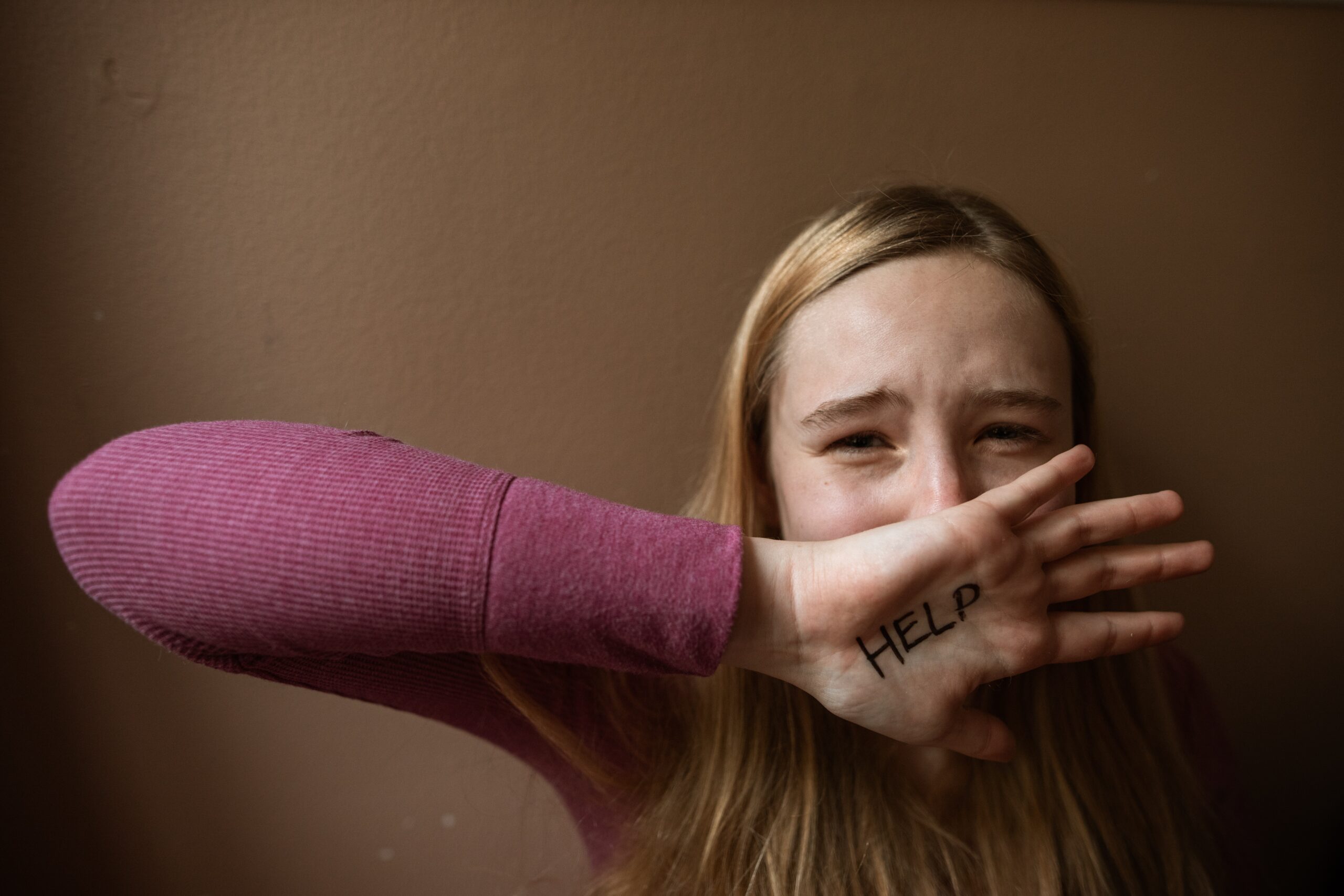![]()
When women get married she supposed to leave her birth house and step in another house and accept strangers for the rest of her life and be with them, work according to that house culture and tradition, but if in the same house for which she left her parents, his family the members they start harassing that women mentally or physically for whatsoever reason. Is it acceptable by society or by that lady who left her parents for these people to get tortured by them???
In the Indian, according to the report of National Family Health Survey (NFHS) 52% of women and 42% of men think it is ok and justified if a husband beats his wife as they are treated as ‘pati parmeshwar’ so they have all right to do with her wife.
Introduction:
The Protection of Women from Domestic Violence Act, 2005 defines domestic violence as harms or injures or endangers the health, safety, life, limb or well‑being, whether mental or physical, of the aggrieved person or tends to do so and includes causing physical abuse, sexual abuse, verbal and emotional abuse, and economic abuse.
Giving injury or harm to the domestic partner with whom an aggrieved person has shared household either as live-in or marriage has harassed his woman partner either mentally, physically, or economically the act is considered as domestic violence.
Acts as Harassment
- Physical harassment: Any act which gives bodily pain, scratch, blood , danger to life, or body parts is all kinds of physical harassment.
- Sexual harassment: Humiliation, sexual abuse, intercourse with injury to an aggrieved person is also harassment.
- Verbal harassment: Insulting a woman’s dignity, poking her, using abusive language, name calling make it harassment to a woman.
- Emotional harassment: humiliating in front of others not appreciating and attacking emotionally.
- Economical harassment: Not giving away all the economic resources or not giving financial help to her partner which is her right According to law, keeping away from luxury which he is enjoying is a kind of economical harassment.
Legal Support to an Aggrieved Person
If a person who is been harassed or has reason to believe that act done to her is domestic violence, a person can call out to:
- Protection officer of the concerned area and file complaints in oral or written or to the service officer.
- Protection Officer is an officer appointed by the State Government in each district. As far as possible, a woman is to be a Protection Officer.
- Service provider is the person concerned with some NGO for women’s protection.
- The complaint can be filed under section 498A of INDIAN PENAL CODE if violence is for Dowry.
- Protection officers should go for proper medical check-ups or the aggrieved person if it is physical harassment.
- The medical report along with the report of domestic violence needs to be submitted to the concerned Magistrate and police station of that area and also a copy of the report to the service provider.
- A protection order needs to be issued by the officer by permission of the magistrate only on the desire of the aggrieved person. And proper free legal aid and services should be given.
- Shelter homes are also provided by the officers to the aggrieved person.
Duty of Magistrate
According to The Protection of Women from Domestic Violence Act, 2005 the magistrate needs to give Notice of first hearing as soon as receipt of an application by protection officer and date should not go beyond 3 days of receipt of application.
The notice of hearing is forwarded to the Protection officer and service provider to inform it to the Respondents (opposite party) of the case and it should also not go beyond 2 days to notice served.
The Magistrate is to endeavour disposal of such an application within 60 days from the date of its first hearing.
The Magistrate can also conduct the hearing in-camera seeing the circumstances of the case or on request of the Aggrieved person.
Relief to Aggrieved Person
- Compensation or Damages for Injuries: The Act provides that you may claim relief by way of compensation or damages for the injuries caused by the acts of domestic violence committed by the respondent. (section 12 (2))
- Right to Reside in a Shared Household: Every woman in a domestic relationship shall have the right to reside in the shared household, whether or not she has any right, title or beneficial interest in the same. (Section 17)
- Protection Order: When the Magistrate is prima facie satisfied from the material placed before him and after providing an opportunity to each of the party of being heard, that domestic violence has taken place’ or is likely to take place, he may pass a protection order (under section 18) in favour of the aggrieved person. (Section 18)
- Residence Order: Wife has a right to reside in the shared household. She cannot be expelled from there by her husband or any of his relatives. (Section 19)
- Monetary Relief: The Magistrate may direct the respondent to pay monetary relief to meet the expenses incurred and losses suffered by the aggrieved person and any child of the aggrieved person as a result of the domestic violence. (Section 20)
- Custody Order: This Act grants temporary custody of any child or children to the aggrieved person or the person making an application on her behalf. (Section 21)
Survey on Domestic Violence
- As going with the reports of WHO (Work World Health Organisation) 2007 ⅓ women are sexually or physically assaulted by their male partner.
- The National Family Health Survey IV reports say that 31.1% of married women aged 15 to 49 years experience spousal violence at least once in their lifetime.
- 31.9 % of cases of being registered by the National Crime Record Bureau under ‘crime against women’ in Indian penal code.
- In 2018 India was called the most dangerous place in the world for women to be women by Thomson Reuters.
The COVID-19 Effects
The ongoing pandemic due to coronavirus not only affected the economy financially but also increased the Rate of crimes within the family, relatives, and spousal relationships.
The National Commission for Women registered 587 cases of domestic violence between the lockdown period March 23 to April 16. Which is more than previous month reports. Moving out was a danger to life due to corona that’s the reason why the person bearing harassment chose social media platforms to save them from violence and harassment by their spouse and his relatives.
It is also been estimated that the rate of divorce may also increase due to this pandemic lockdown.
Many of the activists and lawyers have been a moral support for the women who could not help them out of this hell. Such as Sreeparna Chattopadhyay, Vrinda Grover, Shweta Shankar are some personalities who have always been the backbone to these women and supporting them.
Conclusion
Domestic violence is not a serious issue of this era but it has been followed in India from the past many years in view that a man can do whatever he wants and women are just made for cooking and giving birth to children. Analyzing many cases of domestic violence it was found that if a woman has started speaking for herself, or asking for a job or something beneficial for her there the male ego clashes and violence hit the relationship.
Not only in the remote and rural areas cases of domestic violence have been registered but also in urban areas where many educated and experienced people reside in their family also domestic violence has knocked. In India the main reason for domestic violence against women is for Dowry, every year many women burn, suicide, hang themselves because of continuous poking from spouse family for dowry and daily harassment.
Remedies, protection and punishments have been provided to the aggrieved by the laws but only making law cannot stop domestic violence. As it is the mental condition of the accused who is torturing his better half for any of the reasons. Unless and until the upbringing of these kinds of men will be for women not against women then only the cases of domestic violence can decline.
Women are always saying, ‘We can do anything that men can do.’ But men should be saying, ‘We can do anything that women can do.’
Gloria Steinem



0 Comments